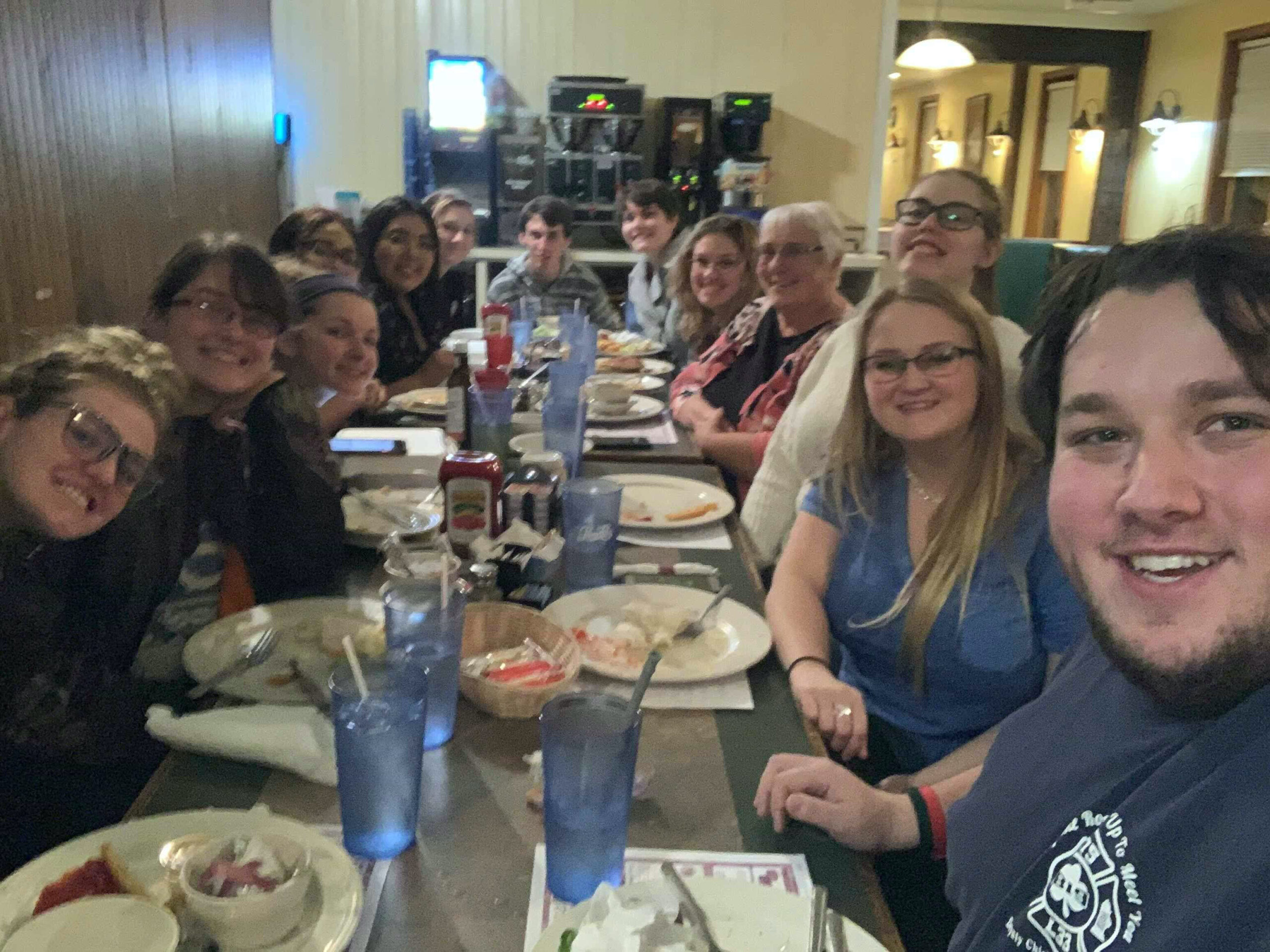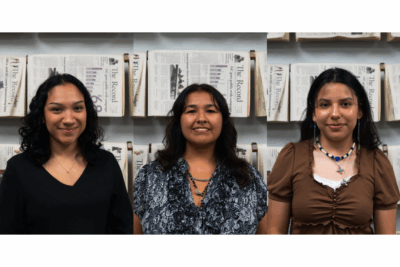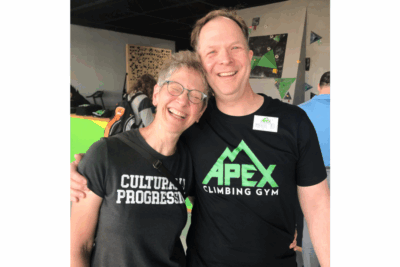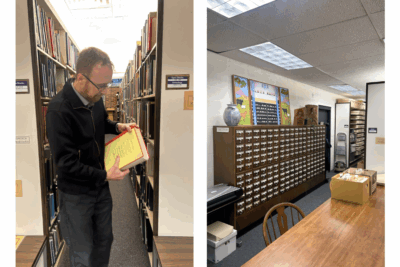This semester, the sign language interpreting department saw a record 12 students venture to 10 different states across the country to grow their interpreting skills in semester-long internships.
This year, two students figured northern Indiana wasn’t cold enough during the winter and made their way to Anchorage, Alaska, where they are stationed to spend three months at the Alaska School for the Deaf and Hard of Hearing.Emma Henderson, a senior, explained her decision to venture 4,000 miles away for the internship.
“There is a shortage of interpreters here,” Henderson said, “and I specifically wanted a full time setting in educational interpreting. None of the other agencies could provide me with that and so Alaska was the perfect fit.”
And so far, Henderson’s regards the decision as a good one.
Bearing the unusual cold, even for Alaska, Henderson has been given the opportunity to interpret for classes at various levels — from music class for kindergarteners to physics aviation.
With these opportunities, Henderson has also been able to learn from mentors and other interpreters along the way. “I love the support and friendship between the interpreters at the high school,” she said. “They have been very welcoming of us.”
Alongside her growth in learning, Henderson says the beauty of Anchorage is unmatched. “Seeing the mountains right outside of my window every morning and when I leave work is mind blowing,” she said.
Henderson is joined by Parker Snyder who is solely interpreting at the high school.
For Katie Celis, a junior, the choice on where to intern directed her further south. The California-native saw New Orleans, Louisiana on a map last year when brainstorming internship locations, her mind was made up.
She knew one of her favorite musical bands, Brockhampton, has a song titled “New Orleans,” Kendrick Lamar, one of her favorite rappers, mentions the city in a song of his and season three of one of her favorite shows American Horror Story, takes place in New Orleans.
Celis is now thankful of the signs which pointed her towards the Southern Louisiana city as she is grateful for her experience thus far.
She works through the New Orleans Sign Language Services, LLC, interpreting in local schools and churches. Currently, she has been interpreting in a school for children with special needs who are either deaf, hard of hearing or rarely use words to express themselves.
The position is why Celis started learning sign language in the first place.
After learning how important sign language can be to students with special needs during a class she helped out with in high school, Celis knew that interpreting was the career path for her.
The same passion that drove her to study sign language interpreting could turn into her first job following graduation. Celis believes there’s a real chance she’ll stay in Louisiana with her current position.
“There’s a real shortage of interpreters here,” Celis said. “Not just interpreters, but interpreters who care about the deaf community.”
Celis explained how the lack of certification needed for interpreters in Louisiana has led to many choosing the career solely for the high wages.
According to Colleen Geier, program director and professor of sign language interpreting, this opportunity following an internship is often the case.
“We have developed a reputation for sending very kind, ethical, and well trained interns,” Geier said. “Many of our graduates have been offered jobs in the location where they did their internship.”
The process of choosing where students would like to intern begins the spring of their junior year when Geier gives all students participating a form to fill in their top three locations. After that, students research their top cities of choice, send out updated resumes and begin looking for housing.
“Our internship… is the bridge between what you learn in the classroom and what you will need to do as a professional interpreter,” Geier said. “Students head off to an internship sure they can’t do it, but by the time they come back they feel like they actually can make a living as an interpreter.”




